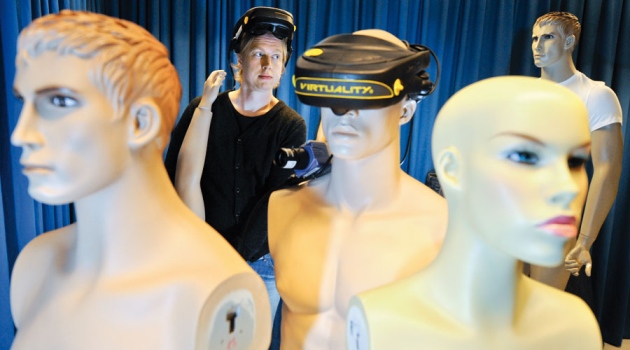I have compiled the following YouTube playlists on philosophy of mind topics:
Mind-Body Problem
Alien Minds
Personal Identity
Robots, AI, and Artificial Life
Illusions
Posthumanity
Singularity
Plato's Cave and the Simulation Hypothesis
A companion blog for the book This Is Philosophy of Mind: An Introduction, 2nd Edition by Pete Mandik, from Wiley-Blackwell Publishers.
Pages
▼
Sunday, June 30, 2013
Saturday, June 29, 2013
Philosophers of Mind Interviewed in 3:AM Magazine
Philosophers of Mind Interviewed in 3:AM Magazine
(last updated June 29, 2013)
(last updated June 29, 2013)
Tuesday, June 25, 2013
Interactive Animated Split Brain Experiment Thingy
This here as an Interactive Animated Split Brain Experiment Thingy: The Split Brain Experiments
Monday, June 24, 2013
Out-of-body experience: Master of illusion : Nature News & Comment
Out-of-body experience: Master of illusion : Nature News & Comment:
"Henrik Ehrsson uses mannequins, rubber arms and virtual reality to create body illusions, all in the name of neuroscience."


Wednesday, May 29, 2013
Monday, January 28, 2013
Wednesday, January 16, 2013
Parasites Use Sophisticated Biochemistry to Take Over Their Hosts - NYTimes.com
Parasites Use Sophisticated Biochemistry to Take Over Their Hosts - NYTimes.com: The current issue of the prestigious Journal of Experimental Biology is entirely dedicated to such examples of zombies in nature. They are far from rare. Viruses, fungi, protozoans, wasps, tapeworms and a vast number of other parasites can control the brains of their hosts and get them to do their bidding. But only recently have scientists started to work out the sophisticated biochemistry that the parasites use.
Friday, January 11, 2013
Tuesday, January 8, 2013
Monday, January 7, 2013
You Can't See It, But You'll Be A Different Person In 10 Years : Shots - Health News : NPR
You Can't See It, But You'll Be A Different Person In 10 Years : Shots - Health News : NPR
No matter how old people are, they seem to believe that who they are today is essentially who they'll be tomorrow. That's according to fresh research that suggests that people generally fail to appreciate how much their personality and values will change in the years ahead — even though they recognize that they have changed in the past.

